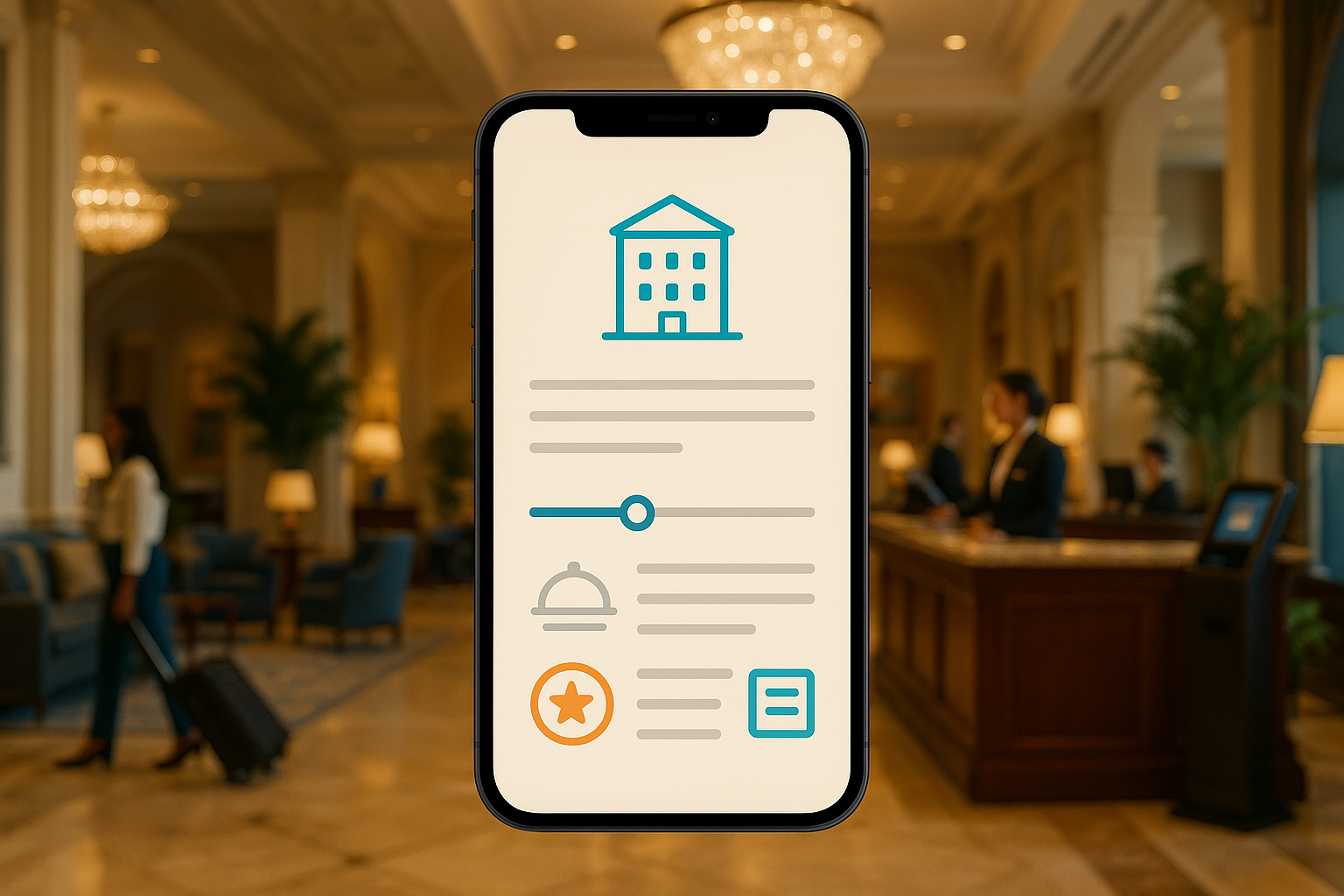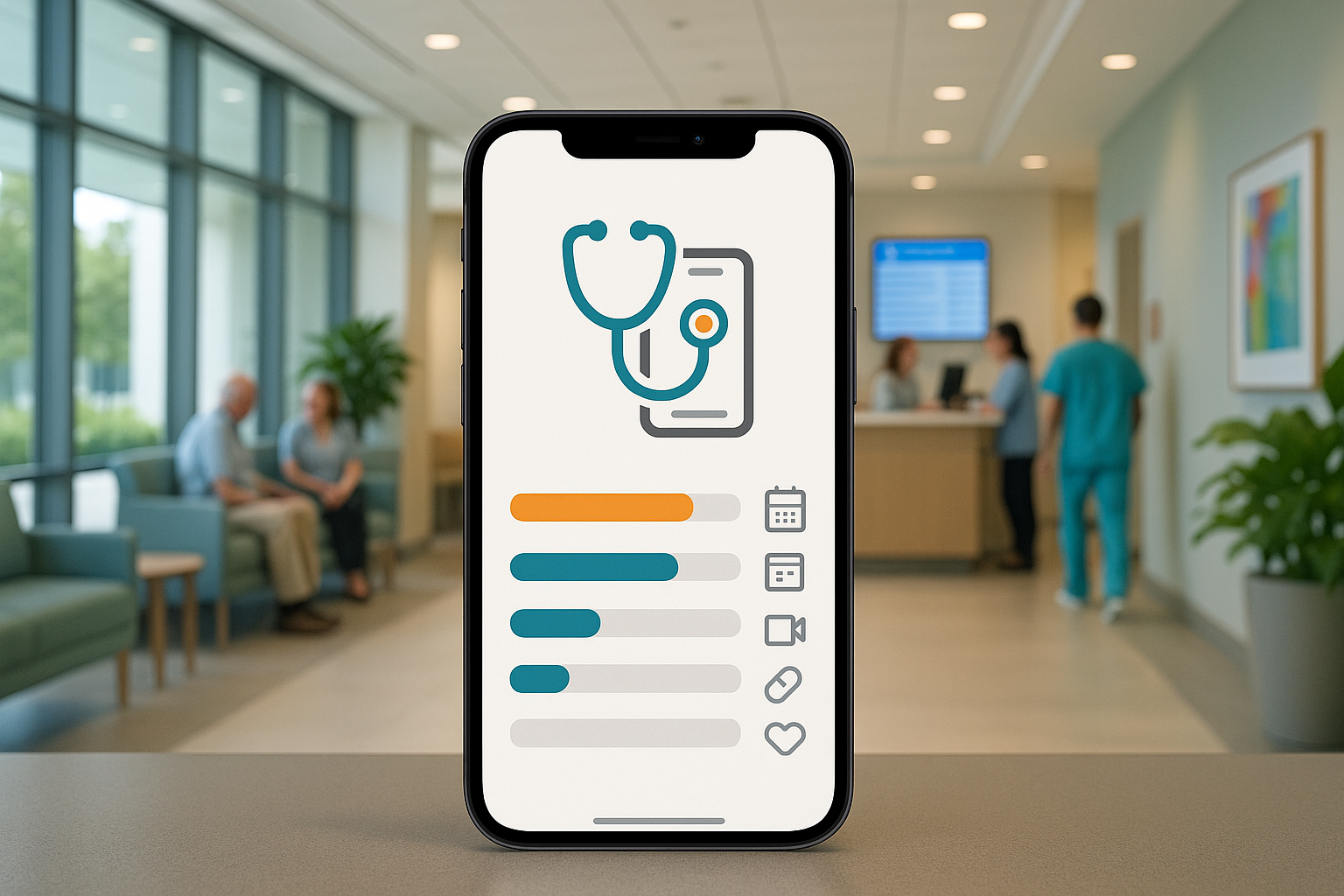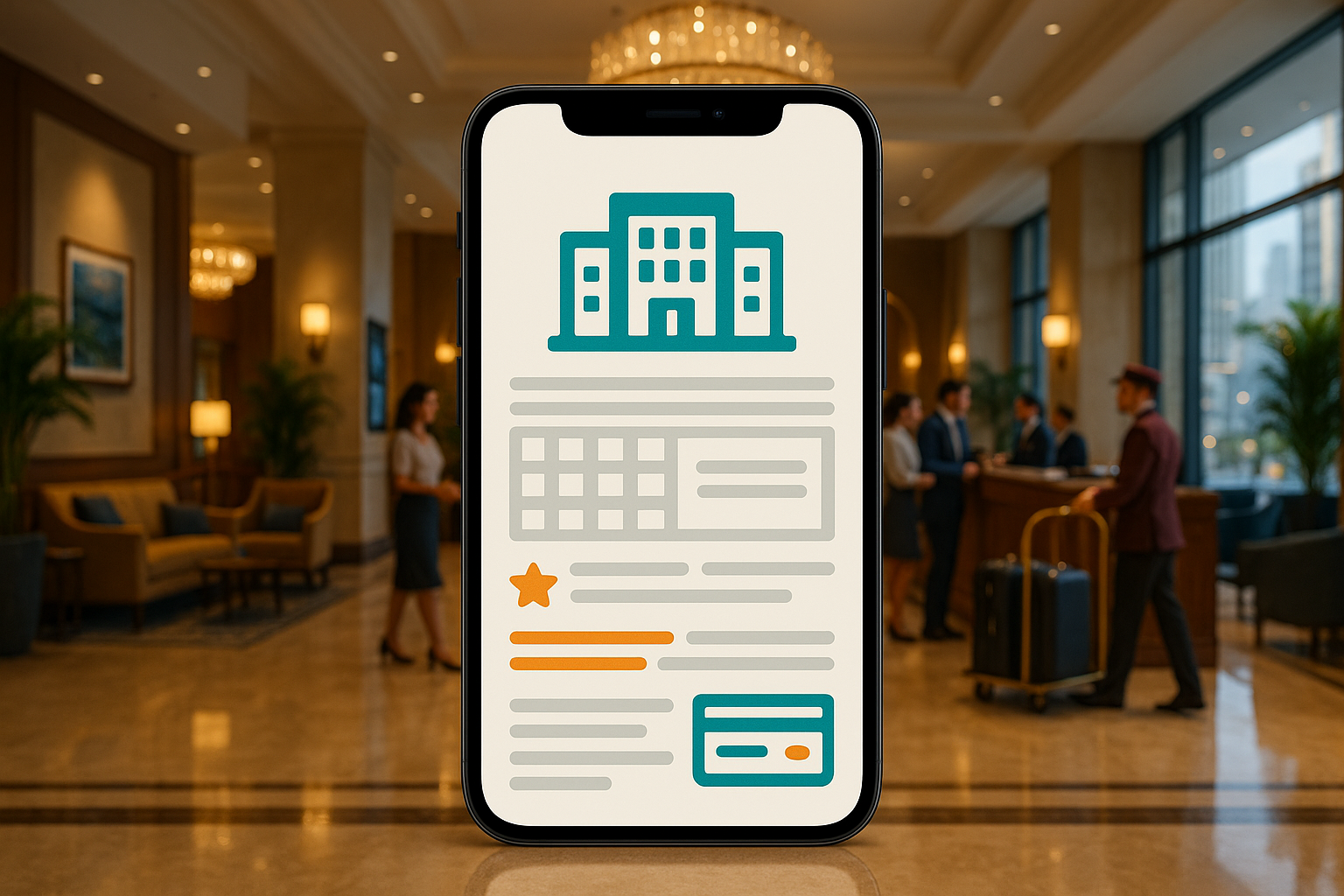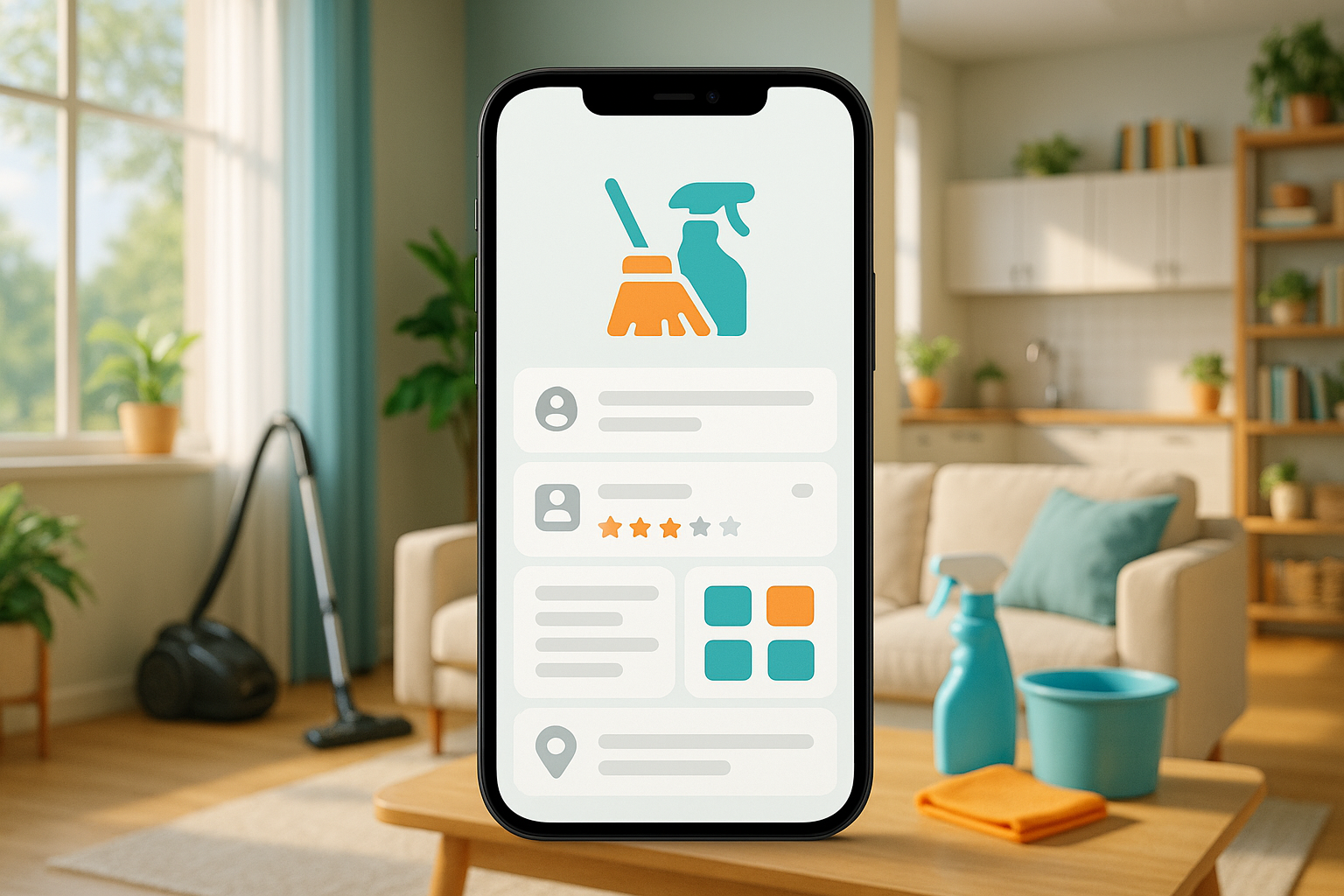Introduction
In today’s hyper-connected world, the hospitality industry is undergoing a profound digital transformation. Guests now expect seamless, personalized experiences at their fingertips, from booking and check-in to in-room services and post-stay feedback. A custom hospitality app is no longer a luxury but a crucial tool for hotels, restaurants, and leisure businesses aiming to stay competitive, enhance operational efficiency, and build lasting customer loyalty.
However, the path from a great idea to a successful, market-ready hospitality app is riddled with obstacles. Many hoteliers and business owners initially consider developing their app in-house, believing it offers more control and a bespoke solution. This route is often far more challenging than anticipated, requiring deep technical expertise, significant financial investment, and a long-term commitment to maintenance and evolution—resources that most hospitality companies simply do not possess.
This article serves as a comprehensive guide to hospitality app development. We will explore what a hospitality app is, delve into the myriad reasons why in-house development is so difficult, outline the different types of apps you can build, and provide a realistic cost estimate. Furthermore, we will present a list of top hospitality app development companies that can turn your vision into a reality.
At MetaCTO, we specialize in transforming ambitious ideas into powerful, user-centric mobile applications. As a top US AI-powered app development firm with over 20 years of experience and more than 120 successful projects, we understand the intricacies of building, growing, and monetizing apps. We’re here to be your technical partner, navigating every step of the process—from a 90-day MVP launch to long-term scaling—to ensure your hospitality app not only meets but exceeds expectations.
What is a Hospitality App?
At its core, a hospitality mobile app is a comprehensive, custom-designed software solution built to automate and enrich the entire guest experience. It functions as a complete guest experience platform, providing a suite of services directly through a mobile application, from the moment a potential guest considers a booking until long after their stay has concluded.
These applications serve as a direct channel between a hospitality business and its customers, offering a level of convenience and personalization that was previously unimaginable. For guests, this means having the autonomy to manage their stay through self-service options like remote check-in and check-out, booking spa treatments or dinner reservations from their room, and communicating directly with hotel staff. For the business, it means streamlining operations, gathering valuable data on guest preferences, and opening up new revenue streams.
A well-crafted hospitality app is more than just a digital brochure; it’s an integrated ecosystem that can handle everything from order and bill management for restaurants and bars to providing a central hub for all services offered by a hotel. By bringing these functionalities into a single, intuitive interface, hospitality apps are fundamentally changing the way guests interact with brands, fostering a deeper sense of engagement and driving business growth.
Reasons It Is Difficult to Develop a Hospitality App In-House
The decision to build a hospitality app in-house versus partnering with a specialized agency is a critical one. While the allure of complete control is tempting, the reality is that in-house development is a complex, costly, and high-risk endeavor that falls far outside the core competencies of most hospitality organizations. The challenges are numerous and multifaceted, spanning from technical expertise and resource allocation to long-term maintenance and legal compliance.
Lack of Core Competency and Resources
The most fundamental challenge is that technology is not, and has never been, a core competency of hoteliers. Running a successful hotel or restaurant requires a mastery of customer service, operations management, and marketing—not software engineering.
Most hotel companies are not structured to successfully build complex technology platforms tailored to operations in-house. They usually have very limited IT staff capable of system development and often lack the resources to compete with pure-play technology companies in development.
Building a sophisticated app requires a large, expensive team of specialists, including:
- Project Managers
- Product Managers
- UI/UX Designers
- Mobile App Developers (for both iOS and Android)
- Backend Developers
- Database Administrators (DBAs)
- Quality Assurance (QA) Testers
- Security Specialists
- Functional and Technical Analysts
Assembling and retaining such a team is a significant undertaking, and the quality of the final product will only be as good as the team hired to build it. An in-house team, inherently focused on a bespoke solution for a single chain, will find it nearly impossible to produce features and functionality at the same breadth or quality as specialized tech companies that benefit from global experience and broad market input.
The Never-Ending Development Cycle
A common misconception is that software development is a one-time project. In reality, in-house tech development is never an “invest and rest” situation. When a hotelier builds technology in-house, they become responsible for maintaining and growing that piece of technology for as long as they use it.
- Constant Maintenance: The platform is never truly “done.” There will always be bugs to fix, enhancements to add, and new user feedback to incorporate.
- Rapid Technological Change: Technology evolves at a breakneck pace. An in-house team will struggle to keep up with new operating systems, device form factors, and emerging technologies like AI, IoT, and Voice Assistants. This can result in the app being out-of-date by the time it is even completed.
- Legacy Lock-In: In-house development can lead hoteliers to be “bugged down” to their own specific chain’s world and legacy Standard Operating Procedures (SOPs) dictated by their systems, making it difficult to innovate or adapt.
This continuous cycle of investment, iteration, and evolution is often underestimated and is simply not feasible or sustainable for most hoteliers who also have to manage the core demands of their business.
Spiraling Costs and Financial Risks
The affordability of in-house tech development is a primary concern for most hoteliers. The financial commitment extends far beyond the initial build.
- High Initial Investment: Developing core systems like a Property Management System (PMS) in-house can take tens of millions of dollars and many years. Even a moderately complex app represents a significant capital expenditure.
- Rising Maintenance Costs: The cost of maintaining custom in-house solutions spirals ever upward. As the system ages and grows more complex, it requires more staff, deeper levels of analysis and testing, and more support resources. Eventually, hoteliers may find themselves unable to justify the expense of simply maintaining the status quo.
- Unaffordable for Smaller Businesses: For smaller hotel chains and management companies, in-house development is often completely unaffordable due to budget and resource constraints.
- Risk of Scope Creep: In-house projects are susceptible to scope creep, where the project’s requirements expand over time, leading to budget overruns and delayed timelines.
Technical and Operational Hurdles
Beyond the financial and resource challenges, the technical and operational difficulties are immense.
- Slower Time-to-Market: In-house development is notoriously slower to get to market compared to buying a solution or partnering with an agency. This lag time from ideation to operation means missing out on market opportunities.
- Integration Nightmares: Augmenting vendor code (like a third-party PMS) with custom in-house add-ons can lead to a cycle of isolation and irreconcilable differences. When the vendor updates their baseline application with new features, security patches, or data components, the hotelier with custom code may be unable to accept the enhancements because their custom touchpoints cannot be easily readapted. They risk being left behind with an outdated, insecure system.
- Lack of Scalability: Older in-house systems, in particular, may not have been built for scale and would take years to adapt to new needs, like connecting directly to all distribution channels.
- Knowledge Loss: Small in-house teams are highly vulnerable to knowledge loss. If a key developer leaves or is out for an extended period, the project can grind to a halt, and critical institutional knowledge may be lost forever.
Legal and Compliance Burdens
Finally, developing technology in-house means taking on the full weight of legal and regulatory compliance. This is a significant and often overlooked task. Hoteliers become solely responsible for incorporating all legal, statutory, and regulatory requirements, such as:
- PCI (Payment Card Industry) Compliance: For handling credit card data securely.
- GDPR (General Data Protection Regulation): For protecting the data and privacy of European citizens.
- Privacy by Design: Building data protection into the system from the outset.
Smaller chains, in particular, often lack the resources and expertise to ensure compliance, taking on increased risk and liability.
Given these overwhelming challenges, partnering with an experienced agency like MetaCTO is the most strategic path forward. Our expertise in custom mobile app development allows you to bypass these hurdles, leverage a world-class team, and get a superior product to market faster and more cost-effectively.
Different Types of Hospitality Apps
The hospitality app market is not a one-size-fits-all landscape. There are various types of applications, each designed to address specific needs within the guest journey and hotel operations. Understanding these categories can help you define the scope and focus of your own app project.
-
Comprehensive Guest Experience Platforms: This is the all-in-one solution. These apps aim to be a complete platform providing all services from booking to check-out. They integrate multiple functionalities into a single, seamless experience, acting as a digital concierge for the guest throughout their entire journey.
-
Self-Service & Autonomy Apps: A key trend in modern hospitality is empowering guests with control over their stay. This type of app enables guest autonomy through various self-service options. Key features often include:
- Remote and mobile check-in/check-out
- Digital key access to rooms
- Direct messaging with hotel staff
- Viewing folios and settling bills
-
In-Room Service Booking Apps: These apps are focused on enhancing the in-room experience and driving ancillary revenue. They allow guests to book all services offered by the hotel directly from their smartphone, right from their room. This can include ordering room service, scheduling housekeeping, booking spa appointments, or reserving a table at the hotel restaurant.
-
Restaurant & Bar Ordering Apps: Specifically for food and beverage operations, this app type introduces the entire management of orders and bills for restaurants and bars directly onto smartphones. Guests can browse menus, place orders, and pay their bill without waiting for a server, improving efficiency and customer satisfaction.
-
Team Management & Employee Scheduling Applications: Not all hospitality apps are guest-facing. This type of application is designed for internal use to streamline operations. It functions as a team management and employee scheduling tool, helping managers create schedules, track staff hours, and communicate with their teams more effectively.
-
Expense Tracking & Invoicing Apps: Another back-of-house solution, this app provides a digital tool for managing the financial side of operations. It can be used for tracking expenses, creating invoices, monitoring payments, and generating financial reports, automating tasks that were previously manual and time-consuming.
Cost Estimate for Developing a Hospitality App
One of the first questions any business asks is, “How much will it cost?” The cost of building a hospitality app is not a single number but a range influenced by several key factors. Understanding these variables is crucial for budgeting and planning your project effectively.
Factors Influencing Development Cost
- Features and Functionality: This is the most significant cost driver. The more features and functionality you include, the higher the cost. Each feature adds to the complexity of the development process. A feature-rich and highly customized system requires additional time and resources to build.
- Development Team: The cost depends heavily on the team you hire. The size of the team, the expertise of the developers, and their geographic location all affect the price. Skilled developers with experience in the hospitality industry typically charge higher rates but deliver better results. More complex projects, like a full property management system with mobile apps, require larger teams, which increases the cost.
- Technology Stack: The choice of technologies plays a role in the final cost. Using more advanced technologies, such as machine learning, AI for personalization, or complex third-party integrations, will drive the cost higher.
- Platform Support: If you require mobile apps for both Android and iOS, this will add to the development costs, as separate development is often needed for each platform.
Regional Cost Variations
Development costs vary significantly by region. Here’s a general breakdown of hourly rates:
- North America or Western Europe: $100–$200 per hour
- Eastern Europe or Asia: $20–$70 per hour
While lower hourly rates can be tempting, it’s essential to balance cost with quality, communication, and experience.
Estimated Cost Brackets
Based on these factors, we can outline some rough cost estimates. Remember, the final cost will depend on the specific requirements of your project.
| Complexity Level | Estimated Cost Range | Description |
|---|---|---|
| Basic Hospitality Software | $10,000 – $30,000 | A simple app with core features like booking, basic guest profiles, and hotel information. |
| Medium-Complex Software | $30,000 – $50,000 | Includes more features like a restaurant management system, some third-party integrations, or self-check-in. |
| Advanced Software | $50,000 – $80,000 or more | A complete property management system with full mobile app support, advanced features like AI, and deep integrations. |
Optimizing Costs Without Compromising Quality
Optimizing costs is about being smart and strategic, not cutting corners. Here are some effective ways to manage your budget:
- Define Clear Goals: Start by clearly defining your project goals and identifying the absolute “must-have” features. This helps avoid unnecessary expenses on features that don’t add significant value.
- Build a Minimum Viable Product (MVP): Instead of building a full-featured app from the start, begin with a basic version (an MVP) that solves a core problem for your users. You can then enhance it over time based on real user feedback. Our Rapid MVP Development service is designed for exactly this, launching a market-ready app in just 90 days.
- Partner with an Experienced Company: Working with a firm that has deep experience in hospitality software development can save you money in the long run by avoiding costly inefficiencies and errors.
- Utilize Existing Frameworks: Leveraging existing open-source tools and frameworks can help save on development time and costs.
While the initial investment in custom hospitality software may seem high, the long-term benefits—such as increased revenue, improved operational efficiency, and enhanced guest loyalty—far outweigh the costs.
Top Hospitality App Development Companies
Choosing the right development partner is arguably the most critical decision you’ll make. A great partner brings not only technical skills but also industry knowledge, strategic guidance, and a proven process. The Hospitality & Leisure Mobile App Development market is diverse, with firms offering services at various price points. The most competitive hourly rate range is $25 - $49/hr, with 65.22% of companies falling into this bracket.
Here is a look at some of the top companies that excel in crafting innovative, user-friendly apps for the hospitality industry.
| Company | MetaCTO (Our Recommendation) |
|---|---|
| Services & Expertise | At MetaCTO, we do more than just build apps; we build businesses. We offer AI-enabled mobile app design, strategy, and development, taking you from concept to launch and beyond. With 20 years of experience and over 120 successful projects, our team provides expert guidance to slash costs and go to market faster. We specialize in launching a 90-day MVP to help you validate your idea, collect feedback, and secure funding. Our services cover the entire app lifecycle: Validate, Build, Grow, Monetize, and Evolve. We are experts in AI Development, custom mobile apps, and app monetization strategies, ensuring your technology evolves with your business. |
| Client Success | We have helped our clients generate over $40M in fundraising support. From turning a digital content library into a video streaming app generating over $500k in annual subscriptions for Mamazen, to implementing cutting-edge computer vision AI for G-Sight’s training app, our track record speaks for itself. |
Other Leading Hospitality App Development Firms
| Company | Founded | Location | Avg. Hourly Rate | Project Size | Key Facts |
|---|---|---|---|---|---|
| SumatoSoft | 2012 | Boston, MA | $50 - $99 | $50,000 - $199,999 | Builds complex custom software and helps companies digitalize their businesses. |
| Webkorps Services | 2016 | Sheridan, WY | $25 - $49 | $10,000 - $24,999 | Leading IT solutions provider with 8+ years of experience and 25 success cases. |
| Systemart | 1999 | Parsippany, NJ | < $25 | Less than $5000 | Over 25 years of experience; offers IT services, staffing, and outsourcing. |
| Simublade | 2014 | Houston, TX | $25 - $49 | $25,000 - $49,999 | A full-service product lab building digital products from mobile apps to AI. |
| Devico Solutions | 2011 | New York City, NY | $25 - $49 | $10,000 - $24,999 | 14+ years of experience building digital experiences that drive customer engagement. |
| WaveAccess | 2000 | Las Vegas, NV | $50 - $99 | Undisclosed | Results-driven company with over 500 successful custom software projects. |
| CDN Solutions Group | 2000 | Phoenix, AZ | $25 - $49 | $50,000 - $199,999 | Premier custom software and mobile app development company. |
| AppMakers USA | 2014 | Los Angeles, CA | $50 - $99 | Undisclosed | Full-service mobile app development with 41 success cases. |
| AppsChopper | 2011 | Massachusetts | $50 - $99 | Undisclosed | Builds high-tech mobile applications from scratch. |
| Zymr Inc. | 2012 | San Jose, CA | $25 - $49 | $10,000 - $24,999 | Software product engineering company focusing on cloud-first and AI-native systems. |
Conclusion
Developing a hospitality app is a strategic imperative for any modern hotel, restaurant, or leisure business looking to thrive in a competitive market. These applications offer a powerful channel to enhance the guest experience, streamline complex operations, and unlock new revenue streams. However, as we’ve explored, the journey of app development, particularly when attempted in-house, is fraught with significant challenges—from prohibitive costs and a lack of core technical competency to the relentless demands of ongoing maintenance and legal compliance.
This guide has walked through the essential aspects of hospitality app development. We’ve defined what these apps are, detailed the compelling reasons to avoid the pitfalls of in-house development, categorized the different types of apps you can build, and provided a realistic framework for understanding the associated costs. By understanding these elements, you are better equipped to make informed, strategic decisions for your business.
The most critical decision is choosing the right partner to bring your vision to life. A specialized agency mitigates the risks of in-house development and provides the expertise needed to build a high-quality, scalable, and successful product.
At MetaCTO, we are more than just developers; we are your strategic partners in innovation. We guide you through every stage, from validating your idea with a rapid 90-day MVP to growing your user base and evolving your app to meet future demands. We handle the complexities of technology so you can focus on what you do best: delivering exceptional hospitality.
If you’re ready to build a hospitality app that will delight your guests and drive your business forward, let’s start the conversation.
Talk with a MetaCTO expert today and let’s build your app the right way, from day one.






